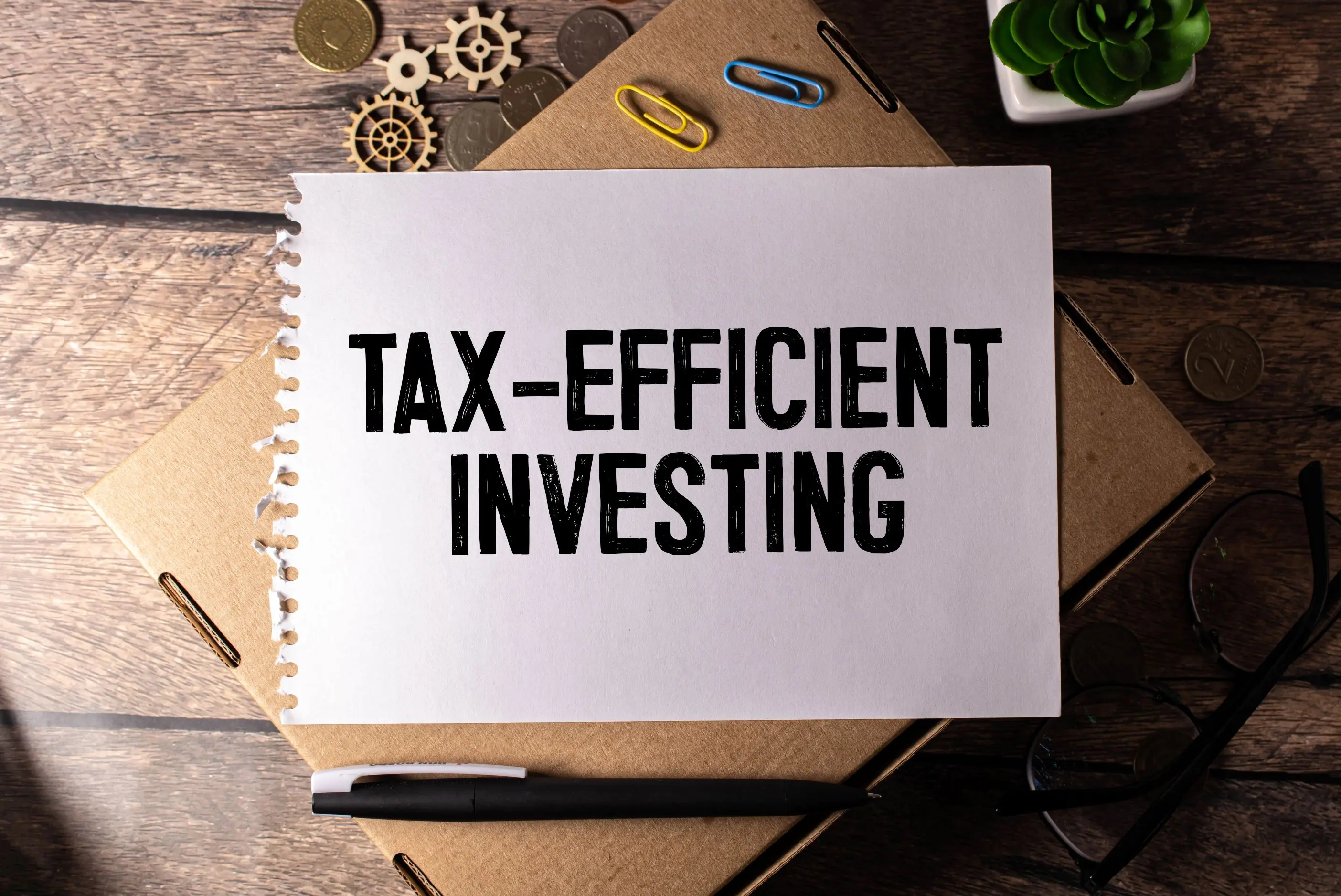The Ultimate Guide to Tax-Efficient Investments and Strategies
Discover how to maximize your investment returns through tax-efficient investing. This guide covers the most tax-efficient investments, strategies for high earners, tax-efficient Fidelity funds, and tips for managing taxable accounts. Learn about the best tax-advantaged accounts and how to minimize your tax burden while growing your wealth effectively. Perfect for investors seeking smart financial planning and optimized after-tax returns.

Maximizing your investment returns isn’t just about picking the right assets—it’s also about minimizing the taxes you pay on those investments. Tax-efficient investing is a powerful way to grow your wealth by reducing tax liabilities and keeping more of your earnings. Whether you’re a high earner, managing taxable accounts, or seeking the best tax-advantaged investments, understanding tax-efficient strategies is crucial for effective financial planning.
What Are Tax-Efficient Investments?
Tax-efficient investments are those designed or managed to minimize the amount of taxes you owe. This can be achieved through investing in tax-advantaged accounts, choosing funds and securities that generate lower taxable income, or employing strategies that defer or reduce taxes.
The goal is to enhance after-tax returns by considering the tax impact alongside investment performance.
Why Is Tax Efficiency Important?
Taxes can significantly reduce your investment returns over time. For example, dividends, interest, and short-term capital gains are often taxed at higher rates, which can erode your portfolio’s growth. By investing tax-efficiently, you can:
- Reduce taxable income generated by your investments
- Defer taxes until you’re in a lower bracket or retire
- Optimize your asset allocation based on tax implications
- Improve the overall net return on your investments
Most Tax Efficient Investments to Consider
Here are some investment types known for tax efficiency:
- Index Funds and ETFs: Typically generate fewer capital gains due to lower turnover, making them more tax-friendly than actively managed funds.
- Municipal Bonds: Interest earned is generally exempt from federal taxes and sometimes state taxes, especially beneficial for higher-rate taxpayers.
- Tax-Deferred Accounts: 401(k)s, IRAs, and annuities allow investments to grow tax-deferred until withdrawal.
- Qualified Dividends and Long-Term Capital Gains: Taxed at lower rates compared to ordinary income.
- Real Estate Investment Trusts (REITs): May offer tax advantages through depreciation, though some income can be taxable.
Tax Efficient Fidelity Funds and Why They Matter
Fidelity offers several tax-efficient mutual funds and ETFs designed to minimize capital gains distributions and taxable income. These funds typically employ strategies such as:
- Low portfolio turnover to reduce realized capital gains
- Investing in tax-exempt or tax-advantaged securities
- Harvesting losses to offset gains
For investors seeking professional management with tax efficiency in mind, Fidelity’s tax-efficient funds are a solid choice, especially for taxable accounts.
Tax Efficient Financial Planning for High Earners
High earners often face steep tax rates, making tax-efficient investing a critical part of their financial strategy. Key approaches include:
- Utilizing tax-advantaged accounts to shelter income
- Investing in municipal bonds for tax-free interest income
- Holding tax-efficient funds in taxable accounts
- Deferring income and capital gains where possible
- Strategically timing withdrawals and realizing gains in lower tax years
Working with a financial advisor knowledgeable about tax-efficient strategies can significantly enhance your after-tax wealth accumulation.
Tax Efficient Investments for Taxable Accounts
When managing taxable accounts, it’s important to select investments that generate minimal taxable income:
- Choose index funds and ETFs over actively managed funds to reduce capital gains.
- Prioritize growth stocks that pay little to no dividends.
- Consider tax-managed funds that aim to minimize distributions.
- Utilize tax-loss harvesting to offset gains.
Tax-efficient investing in taxable accounts helps preserve wealth by minimizing the drag of taxes on your returns.
Best Tax-Advantaged Investments and Accounts
Beyond taxable accounts, tax-advantaged accounts offer significant benefits:
- 401(k) and Traditional IRA: Contributions may be tax-deductible; taxes deferred until withdrawal.
- Roth IRA: Contributions are after-tax, but qualified withdrawals are tax-free.
- Health Savings Account (HSA): Contributions are tax-deductible, grow tax-free, and withdrawals for medical expenses are tax-free.
- 529 College Savings Plans: Earnings grow tax-free when used for qualified education expenses.
Using these accounts efficiently is a cornerstone of a tax-smart investment strategy.
Tax Efficient Strategies to Consider
To further enhance tax efficiency, consider:
- Asset Location: Place income-generating assets in tax-advantaged accounts and tax-efficient assets in taxable accounts.
- Tax-Loss Harvesting: Selling investments at a loss to offset gains and reduce taxable income.
- Deferring Capital Gains: Holding investments long enough to qualify for long-term capital gains tax rates.
- Charitable Giving Strategies: Donating appreciated securities to avoid capital gains taxes.
Tax Efficient Investing Fidelity: A Closer Look
Fidelity offers tools and funds tailored for tax efficiency. Their tax-managed funds and ETFs can be incorporated into your portfolio to reduce taxable events. Fidelity also provides planning tools to help investors model tax impacts and optimize their investment mix.
Best Investments for a Taxable Account
For taxable accounts, some of the best investments include:
- Tax-efficient index funds and ETFs
- Municipal bonds for tax-free interest income
- Growth stocks with low dividend yields
- Tax-managed mutual funds
These investments help minimize current tax liabilities, allowing your portfolio to grow more efficiently.
Summary
Tax-efficient investing is essential for maximizing your investment returns, especially if you are a high earner or managing taxable accounts. By leveraging tax-efficient funds, tax-advantaged accounts, and smart financial planning strategies, you can reduce your tax burden and increase your net wealth. Fidelity offers a range of tax-efficient investment options and tools that can help you implement these strategies effectively.
Consulting with a financial professional knowledgeable in tax planning can further tailor these strategies to your individual circumstances and goals.
Related Posts

How to Open a Bank Account Online in 2025: Complete Guide

Socially Responsible Investment Funds: A Comprehensive 2025 Guide

Maximizing Your Financial Future: A Comprehensive Guide to Choosing and Working with Wealth Advisors

